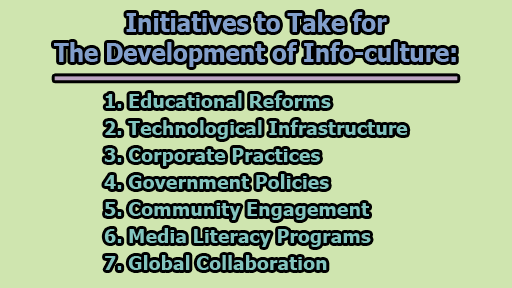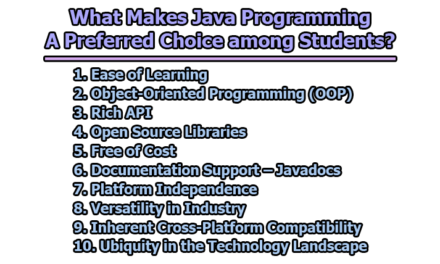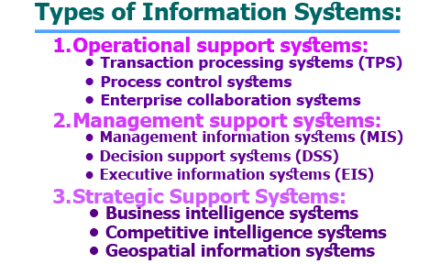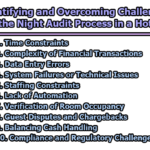In the ever-evolving landscape of the digital era, the concept of info-culture has become paramount in shaping societies and organizations. Info-culture refers to the set of values, attitudes, and practices that govern the way individuals and groups interact with information. In a world where information is abundant and easily accessible, fostering a positive info-culture is essential for harnessing the benefits of knowledge and innovation. This article explores the essential features of info-culture and initiatives to take for the development of info-culture.
Concept of Info-culture:
Info-culture refers to the collective mindset, values, and practices that govern how individuals and communities interact with information in the digital age. It involves the cultivation of information literacy, open communication, adaptability, and continuous learning. At its core, info-culture emphasizes the importance of knowledge sharing, collaboration, and inclusivity, creating an environment where information is leveraged for innovation and societal progress. In today’s rapidly evolving landscape, fostering a positive info-culture is essential for navigating the vast sea of data and harnessing the benefits of information in a meaningful way.
Features of Info-Culture:
Here are the key essential features of info-culture:
1. Information Literacy: At the heart of info-culture lies information literacy. This feature involves the ability to locate, evaluate, and effectively use information. Individuals with strong information literacy skills can critically assess sources, distinguish between credible and unreliable information, and navigate the vast expanse of data with confidence. An info-culture promotes the development of these skills through education and training, empowering individuals to make informed decisions.
2. Open Communication: Info-culture thrives on open communication channels. It emphasizes the importance of transparent and accessible information sharing within organizations and communities. Open communication fosters collaboration, encourages the free flow of ideas, and establishes an environment where knowledge is not hoarded but shared for the collective benefit. In an info-culture, individuals are encouraged to communicate openly, facilitating innovation and problem-solving.
3. Adaptability and Continuous Learning: Given the rapid pace of technological advancements, an info-culture values adaptability and continuous learning. Individuals and organizations are encouraged to embrace change, stay updated on emerging trends, and continuously enhance their skills. This feature ensures that knowledge remains relevant in a constantly evolving landscape, enabling proactive responses to challenges and opportunities.
4. Knowledge Sharing: A fundamental aspect of info-culture is the emphasis on knowledge sharing. This involves creating platforms and mechanisms that facilitate the exchange of insights, experiences, and expertise. Whether within organizations or across communities, promoting a culture of sharing contributes to collective learning and the acceleration of innovation. Info-culture recognizes that knowledge grows when it is shared.
5. Collaboration and Interdisciplinarity: Info-culture encourages collaboration and recognizes the value of interdisciplinary perspectives. Breaking down silos and fostering collaboration between different fields of knowledge leads to holistic problem-solving approaches. By promoting interdisciplinary studies and projects, info-culture creates an environment where diverse insights converge, resulting in innovative solutions to complex challenges.
6. Accessibility and Inclusivity: An inclusive info-culture ensures that knowledge is accessible to all, irrespective of socio-economic backgrounds, geographical locations, or physical abilities. Initiatives promoting digital inclusion, providing free access to educational resources, and designing user-friendly interfaces contribute to creating a more equitable information landscape.
7. Critical Thinking and Evaluation: Info-culture places a high value on critical thinking skills. The ability to question, analyze, and evaluate information sources is crucial in distinguishing between reliable information and misinformation. Educational institutions play a pivotal role in instilling these skills, emphasizing the importance of critical thinking in navigating the vast sea of information in the digital age.
Initiatives to Take for the Development of Info-culture:
The development of a robust info-culture requires concerted efforts and strategic initiatives across various sectors. These initiatives aim to foster a positive environment where information is not only abundant but is also effectively utilized for the benefit of individuals and society as a whole. Here are the initiatives for the development of info-culture:
- Educational Reforms:
- Integration of Information Literacy: One of the primary initiatives involves integrating information literacy into educational curricula at all levels. Schools, colleges, and universities should incorporate modules that teach students how to locate, evaluate, and use information critically. This initiative ensures that individuals develop essential skills to navigate the information landscape.
- Promotion of Interdisciplinary Studies: Encouraging interdisciplinary studies fosters a more holistic approach to problem-solving. Educational institutions can establish interdisciplinary programs, encouraging students to explore connections between different fields. This initiative promotes a broader understanding of complex issues and prepares individuals to tackle real-world challenges collaboratively.
- Technological Infrastructure:
- Digital Access Initiatives: Governments and organizations must invest in initiatives that provide widespread digital access. This includes improving internet connectivity in remote areas, ensuring affordability of digital devices, and promoting digital literacy. Bridging the digital divide is crucial for creating an inclusive info-culture.
- Innovation Hubs and Tech Incubators: Establishing innovation hubs and technology incubators creates spaces for collaboration and idea generation. These environments support the development of new technologies and solutions by bringing together individuals from various backgrounds. Incubators can provide resources, mentorship, and a conducive atmosphere for innovation to thrive.
- Corporate Practices:
- Promoting Knowledge Sharing Platforms: Organizations play a pivotal role in fostering an info-culture within their workforce. Implementing internal platforms that facilitate knowledge sharing, such as intranet systems and collaborative tools, encourages employees to share their expertise. Regular knowledge-sharing sessions can be organized to promote a culture of learning and collaboration.
- Continuous Learning Programs: Employers should actively support continuous learning programs for their employees. This can involve providing resources for professional development, supporting attendance at workshops and conferences, and incentivizing further education. By investing in the continuous learning of employees, organizations contribute to the adaptability and resilience of their workforce.
- Government Policies:
- Information Accessibility Regulations: Governments can shape info-culture through legislation. Implementing regulations that ensure information accessibility, open data initiatives, and transparency requirements for public institutions contribute to a more informed and empowered society. These regulations create a framework for responsible information management.
- Support for Research and Development: Governments should allocate resources and provide incentives for research and development initiatives. This support can be directed towards both academic research institutions and private enterprises. By investing in R&D, governments contribute to the creation of new knowledge, technologies, and innovations that benefit society at large.
- Community Engagement:
- Promoting Local Information Hubs: Establishing local information hubs can empower communities by providing access to relevant information. These hubs can offer resources, workshops, and training programs to enhance information literacy at the grassroots level.
- Community-Based Knowledge Sharing Events: Organizing community-based knowledge-sharing events, such as seminars, workshops, and discussion forums, encourages individuals to share their experiences and expertise. These initiatives create a culture of learning and collaboration within communities, contributing to the development of a positive info-culture.
- Media Literacy Programs:
- Promoting Critical Media Consumption: Initiatives aimed at promoting media literacy are crucial in the digital age. Education programs that teach individuals how to critically consume and analyze media content help in combating misinformation. This initiative empowers individuals to make informed decisions based on reliable information.
- Collaboration with Media Outlets: Collaborating with media outlets to promote responsible journalism and fact-checking initiatives contributes to building a trustworthy information ecosystem. Supporting media literacy programs through partnerships with news organizations enhances the overall quality of information available to the public.
- Global Collaboration:
- International Information Exchange Programs: Facilitating international collaboration in information exchange programs fosters a global perspective on knowledge. This can involve partnerships between educational institutions, research organizations, and governments to share insights, research findings, and technological advancements.
- Cross-Cultural Initiatives: Promoting cross-cultural initiatives that facilitate the exchange of information and ideas between diverse communities enriches the global info-culture. Encouraging collaboration on a global scale contributes to a more interconnected and inclusive knowledge landscape.
In conclusion, the concept of info-culture is integral to navigating the complexities of the digital age. Fostering a positive info-culture requires a collective effort from educational institutions, organizations, governments, and individuals. By prioritizing knowledge sharing, collaboration, and continuous learning, societies can harness the transformative power of information for the benefit of all. Initiatives at the educational, technological, corporate, and governmental levels are essential in building a resilient info-culture that adapts and thrives in the face of constant change. As we continue to embrace the digital era, cultivating an info-culture becomes not only a necessity but a driving force for progress and innovation.

Former Student at Rajshahi University










